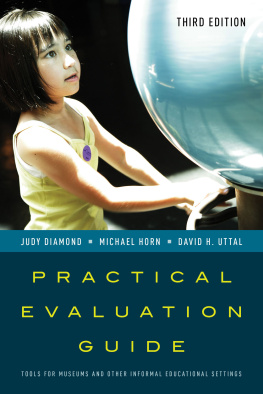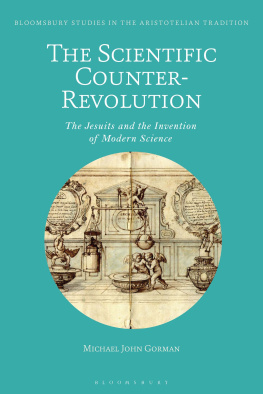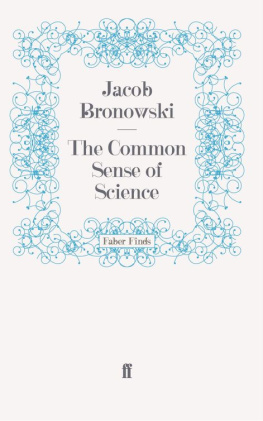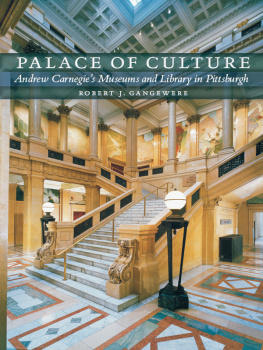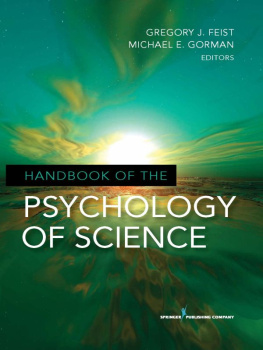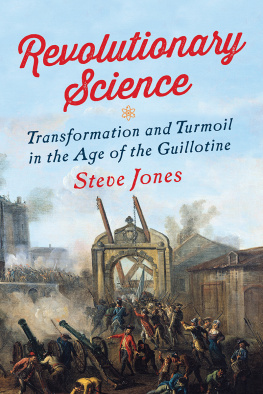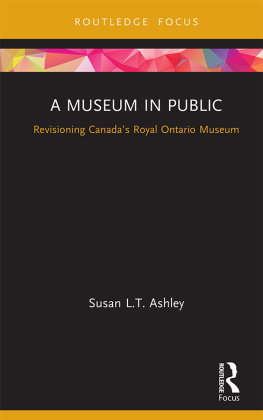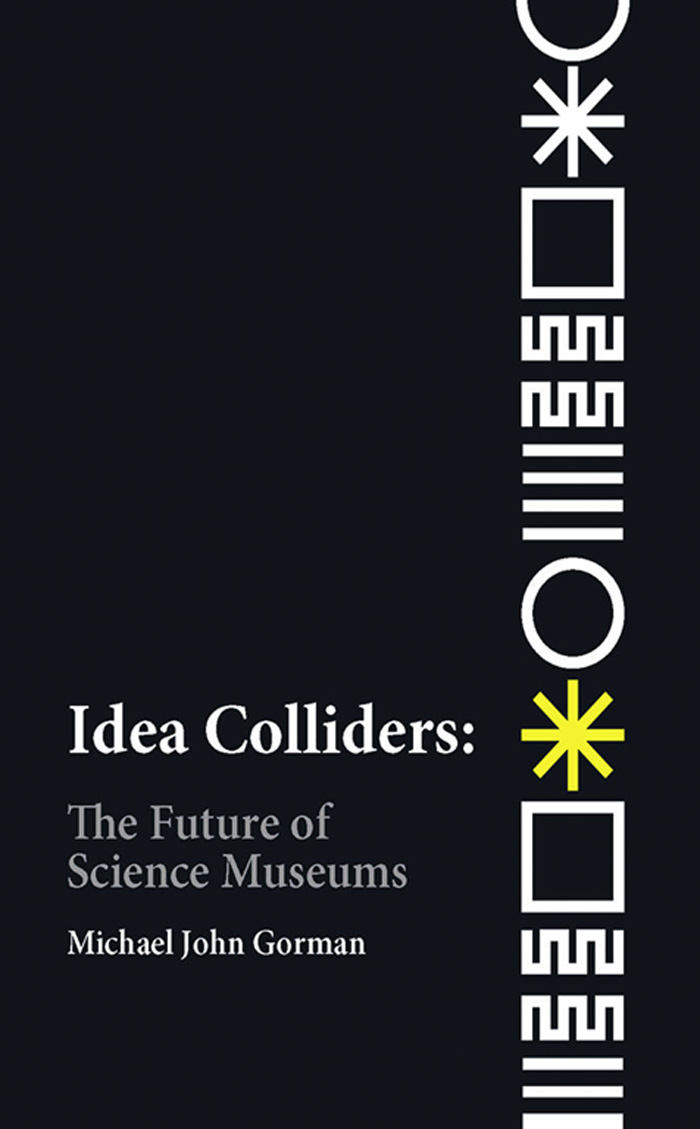
Idea Colliders
metaLABprojects
The metaLABprojects series invites readers to take part in reimagining print-based scholarship for the digital age. It provides a platform for emerging currents of experimental scholarship, documenting key moments in the history of networked culture, and promoting critical thinking about the future of cultural institutions. www.metalab.harvard.edu .
Series Editor
Jeffrey T. Schnapp
Idea Colliders
The Future of Science Museums
Michael John Gorman
The MIT Press
Cambridge, Massachusetts
London, England
2020 Massachusetts Institute of Technology
All rights reserved. No part of this book may be reproduced in any form by any electronic or mechanical means (including photocopying, recording, or information storage and retrieval) without permission in writing from the publisher.
This book was set in Minion Pro by the MIT Press.
Library of Congress Cataloging-in-Publication Data
Names: Gorman, Michael John, author.
Title: Idea colliders : the future of science museums / Michael John
Gorman.
Description: Cambridge, Massachusetts : The MIT Press, [2020] | Series:
MetaLABprojects | Includes bibliographical references.
Identifiers: LCCN 2019050148 | ISBN 9780262539241 (paperback)
Subjects: LCSH: Science museums.
Classification: LCC Q105.A1 .G67 2020 | DDC 507.4--dc23
LC record available at https://lccn.loc.gov/2019050148
10 9 8 7 6 5 4 3 2 1
d_r0
For Lenka
Contents
Acknowledgments
A great many people have inspired and informed this book through creative and critical conversations and provided support and encouragement on the journey. While this is very much my personal perspective, it is a perspective on a collective enterprise involving the privilege to collide with and learn from a great number of artists, scientists, designers, curators, cultural entrepreneurs, rule-breakers, and creative thinkers around the world.
For their important involvement in shaping Science Gallery Dublin, I would like to acknowledge John Hegarty, Mike Coey, Chris Horn, Deirdre Tracey, Diarmuid OBrien, Chris de Burgh, John Climax, Colm Long, David Martin, Shay Garvey, and all the Science Gallery Dublin team, board, and supporters over the years. For being part of the founding team of Science Gallery Dublin and for the shared journey of experimentation, I especially thank my unstoppable partners in crime Lynn Scarff and Lea OFlannagain.
For their important role in kicking off the creation of Science Gallery International, in addition to those already mentioned, I thank Fergal Naughton, Clare Matterson, Peter Barron, and the team at Google.org .
As key early team members of Science Gallery International, true to the IDEALS (Iterate, Deliver, Enable, Ambition, Love, and Support), I thank especially Sarah Durcan, Fionn Kidney, Katrina Enros, Danny Browne, and Louise OReilly. For taking on the torch of Science Gallery International after my departure for Munich and leading the global network to the next level, I take my hat off to Andrea Bandelli and his great team at Science Gallery International. For championing a new vision of the globally networked university through innovation in public engagement, and for embracing the Science Gallery vision, I thank Paddy Prendergast.
For being such wonderful companions, supporters, and critical friends along this unfolding and unfinished journey, I especially thank Ken Arnold, Paola Antonelli, Oron Catts, Tony Dunne, Fiona Raby, and David Edwards. For their roles in creating Science Gallery London and often challenging and always stimulating discussions: Simon Howell, Rick Trainor, Deborah Bull, Daniel Glaser, Tim Henbrey, and the whole Science Gallery London team and supporters. For their instigation of the development of Science Gallery Bengaluru and energizing conversations: Kalpana and Pradeep Kar, K. Vijay Raghavan, Mukund Thattai, Kiran Mazumdar Shaw, I.S.N. Prasad, Yashas Shetty, Geetha Narayanan, and Jahnavi Phalkey. For instigating and leading Science Gallery Melbourne with vision and ambition: Glyn Davis, Jacyl Shaw, Karen Day, Julie Wells, and Rose Hiscock. For the birthing of Science Gallery Venice: Michele Bugliesi, Marco Sgarbi, Silvia Casini, Fabio Poles, Francesco Zirpoli, and the Science Gallery Venice team. For inspiring me in relation to thinking differently about brand and design and for shaping the Science Gallery identity, I thank Ciaran OGaora and his team at ZeroG and Ralph Ardill. For developing the Science Gallery brand further and making the materials produced by Science Gallery look so amazing, I especially thank Brian Nolan and the team at Detail. For the opportunity to learn in the company of a wonderful cohort of peers, I am also grateful to the Chief Executive Programme of National Arts Strategies and the instructors at Harvard Business School and the Ross School of Business.
Next page

